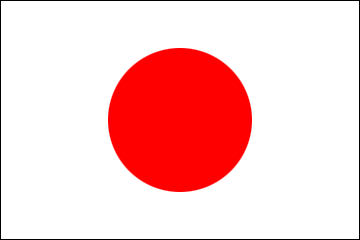Comment by the Minister of Justice about the press conference held by the defendant Carlos Ghosn (1)
Defendant Carlos Ghosn, who has fled Japan, just held a press conference. His departure from Japan could constitute a crime and the International Criminal Police Organization issued a Red Notice against him.
Defendant Ghosn had been indicted for allegedly underreporting his remuneration in securities reports, and for allegedly violating the Companies Act through aggravated breach of trust by having a Nissan subsidiary transfer a massive amount of money to a deposit account in the name of a company effectively owned by him, for his own profit.
The court released defendant Ghosn on bail because he promised to comply with the bail conditions that he must not hide/run away or travel abroad, but he fled Japan and ran away from his criminal trial. Such action would not be condoned under any nation’s system. Furthermore, he has been propagating both within Japan and internationally false information on Japan's legal system and its practice. That is absolutely intolerable.
Japan’s criminal justice system sets out appropriate procedures and is administered properly to clarify the truth in cases while guaranteeing basic individual human rights.
Each nation’s criminal justice system has, by its very nature, various differences from systems in place in other nations. For example, as for detention of a suspect, in one country, such detention is permitted widely without a warrant, whereas in Japan, setting aside rare exceptions (e.g. arresting a person in the act of committing a crime), it is impossible to detain a suspect without a warrant. That is to say, unless the investigation authority has been rendered a warrant from the court after review by a judge who is independent from the investigation authority, it is impossible for the authority to arrest someone. As such, the possibility of placing someone in custody is very limited and detention is strictly controlled.
Each nation’s criminal justice system has its roots in its history and culture, being formulated and developed over a long period of time. Therefore, there is no superiority or inferiority among legal systems of different countries. The merits of a criminal justice system should be decided by assessing the entire system per se. It is not appropriate to single out certain aspects of the system and criticize them.
There is also a way to file a suit to seek redress of a detriment suffered by such detention. Unless there is a danger of evidence being concealed or destroyed, a defendant may be granted contact with his spouse and others. For all criminal cases in Japan, as a matter of course, all defendants are ensured the right to a fair and public trial.
Thanks to the persistent efforts made by Japan’s police, judges and prosecutors, and the Japanese public, Japan’s crime rate is extremely low compared to other countries and it is fair to say that Japan is now the safest country in the world.
I am of course aware of various views about the Japanese system, and as a matter of fact, we have continued to upgrade our system to respond to the demands of the day. We will spare no effort to consistently review how we can improve Japan’s judicial system.
Moving forward, I will continue to provide information and answer questions actively to ensure a more accurate understanding of Japan’s criminal justice system by people around the world.
If defendant Ghosn has anything to say, it is my strong hope that he engage in all possible efforts to make his case within Japan’s fair criminal justice proceedings, and that he seek justice rendered by a Japanese court.
The Government of Japan will take all available measures so that Japanese criminal proceedings can be properly served, while closely working with relevant countries, international organizations, and other stakeholders.
